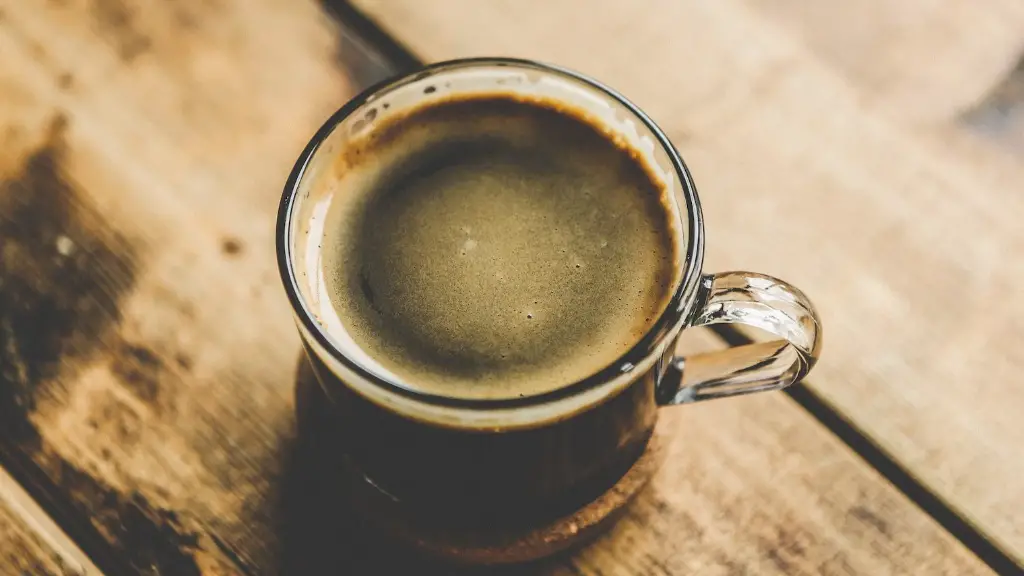In today’s world, coffee is one of the most popular beverages. It is consumed for a variety of reasons—for its energizing properties, for its flavor, and for its comfort. While many parents enjoy coffee, the question arises: Is it safe to drink coffee during breastfeeding? In this article, we’ll explore the potential effects of coffee on breastfeeding moms and their babies, as well as some tips for moderating caffeine consumption if you do choose to drink it.
Generally speaking, the American Academy of Pediatrics recommends that mothers limit their consumption of caffeine while breastfeeding. However, caffeine consumption is a personal choice, and each mother should make the decision that’s right for their health and their baby. It’s important to understand the potential side effects of consuming caffeinated beverages while breastfeeding.
Because caffeine is a stimulant, it can interfere with infants’ sleep patterns. Babies may have increased difficulty falling asleep and have shorter periods of deep sleep. Research has also suggested that babies who consume caffeine-exposed breastmilk are more likely to be irritable and fussy.
While caffeine does pass from a mother’s bloodstream into her milk, the amount is relatively small. Most studies suggest that drinking up to 300 milligrams of caffeine per day—or the equivalent of two to three 8-oz cups of brewed coffee—should not affect breastfeeding babies. So, for most moms, it is considered safe to drink coffee in moderation.
It’s also important to keep in mind that all forms of caffeine are not created equal. For example, coffee and tea have different caffeine content per serving. Additionally, energy drinks, soft drinks, and chocolate all contain small amounts of caffeine, so it’s important to consider the amount of caffeine you’re consuming from all sources if you’re breastfeeding.
Effects On Breastfeeding Schedule
When choosing to drink coffee while breastfeeding, it can be helpful to think about the timing of your coffee consumption. One way to minimize the impact of caffeine on your baby’s sleep is to avoid consuming coffee close to bedtime, or directly before breastfeeding. Additionally, choosing to drink coffee in the morning might also be beneficial, as this can help you to avoid any late-night caffeine consumption.
Moreover, there are a few simple strategies for minimizing the impact of coffee consumption on breastfeeding. For instance, drinking plenty of water can help to flush out any excess caffeine from your system. Additionally, pumping after drinking coffee can help to reduce the amount of caffeine that gets into your breastmilk.
Finally, some of the most important things to keep in mind are your own health and wellbeing. Caffeine can be beneficial if it helps you to feel energized and productive. Just remember that it’s important to stay hydrated, have a balanced diet, and get enough rest.
Alternative Solutions
Fortunately, there are plenty of alternatives to both caffeinated and decaffeinated beverages. One option is herbal tea, which is naturally caffeine-free and can provide health benefits such as support for digestion, relaxation, and detoxification.
Dairy-free milk alternatives such as almond milk, coconut milk, and oat milk are another great option. These milk alternatives are easy to make at home, and can provide a delicious and nutritious way to start the day.
Fruit smoothies are also a great choice. They provide a flavorful and nourishing option for those looking for an energizing drink without the caffeine. When making your own smoothies, make sure to include healthy fats, such as coconut oil or avocado, to help keep you full throughout the day.
Finally, for an even healthier alternative to coffee, consider a cup of warm lemon water. Lemon water is packed with vitamins and minerals, and has been linked to health benefits such as improved digestion and better hydration.
Better Understanding Caffeine Intake
In order to make the best decision for your health and your baby’s health, it’s important to get an accurate understanding of your caffeine intake. The easiest way to do this is to keep track of all the caffeinated beverages you consume. This will help to ensure that you are not consuming too much—or too little—caffeine.
If you do choose to drink coffee while breastfeeding, it’s important to monitor your baby’s behavior. If you notice that your baby is becoming fussy or irritable after you’ve had a cup of coffee, it’s best to reduce your caffeine intake or avoid caffeine altogether.
It’s also essential to be aware of your body’s response to caffeine. Some people may experience adverse reactions even at lower doses, such as jitteriness, anxiety, and restlessness. If you experience any of these symptoms, it’s time to reduce or eliminate your caffeine consumption.
Coffee Alternatives During Pregnancy and Lactation
If you decide to abstain from coffee during pregnancy and lactation, there are plenty of alternatives available to help keep you energized and alert. Options such as green tea and matcha provide significant amounts of natural caffeine and a host of antioxidants.
Nettle tea is a great choice for pregnant and breastfeeding mamas. It is rich in calcium, iron, and magnesium and can support overall health and wellbeing. Chai tea is another great option—it has a slightly higher caffeine content than green tea, but still much lower than the amount found in coffee. Plus, it has a delicious flavor. Lastly, chicory root is naturally caffeine-free and has excellent health benefits.
Final Tips On Caffeine Intake During Breastfeeding
If you choose to consume coffee while breastfeeding, it’s important to remember that moderation is key. The effects of too much caffeine can be detrimental to both you and your baby’s health. Here are a few tips to remember:
- Avoid consuming coffee within 2 to 3 hours of breastfeeding.
- Keep track of all the caffeinated beverages you’re consuming.
- Monitor your baby for any negative reactions.
- Be aware of your own body’s response to caffeine.
- Drink plenty of water throughout the day.
Expert Opinions
In an interview with Dr. Sarah Whelan, board certified lactation consultant, she stated: “When it comes to caffeine consumption while breastfeeding, experts recommend limiting the consumption to 200-300 milligrams per day, which is equivalent to one to two 8-oz cups of coffee. However, women should always talk to their primary care provider before making any changes to their caffeine intake.”
In a separate interview with Dr. Melinda Prado, specialist in pediatric nutrition, she said, “Caffeine can be passed through breastmilk to your baby, and too much caffeine can have a negative impact on their sleep. Mothers should consider their caffeine intake and adjust it accordingly. But if you do choose to drink coffee, there are ways to ensure that the amount in your breastmilk stays low.”
Closing Remarks
In conclusion, it’s important to be mindful of your caffeine intake while breastfeeding. While it is generally considered safe to consume 1-2 cups of coffee a day, it’s always best to talk with your primary care provider to make sure this is the best option for you and your baby. There are also plenty of alternatives to caffeinated beverages that can provide similar benefits, and can be just as energizing and delicious. Ultimately, the decision is yours, and it’s essential to make the choice that’s right for you and your baby.





